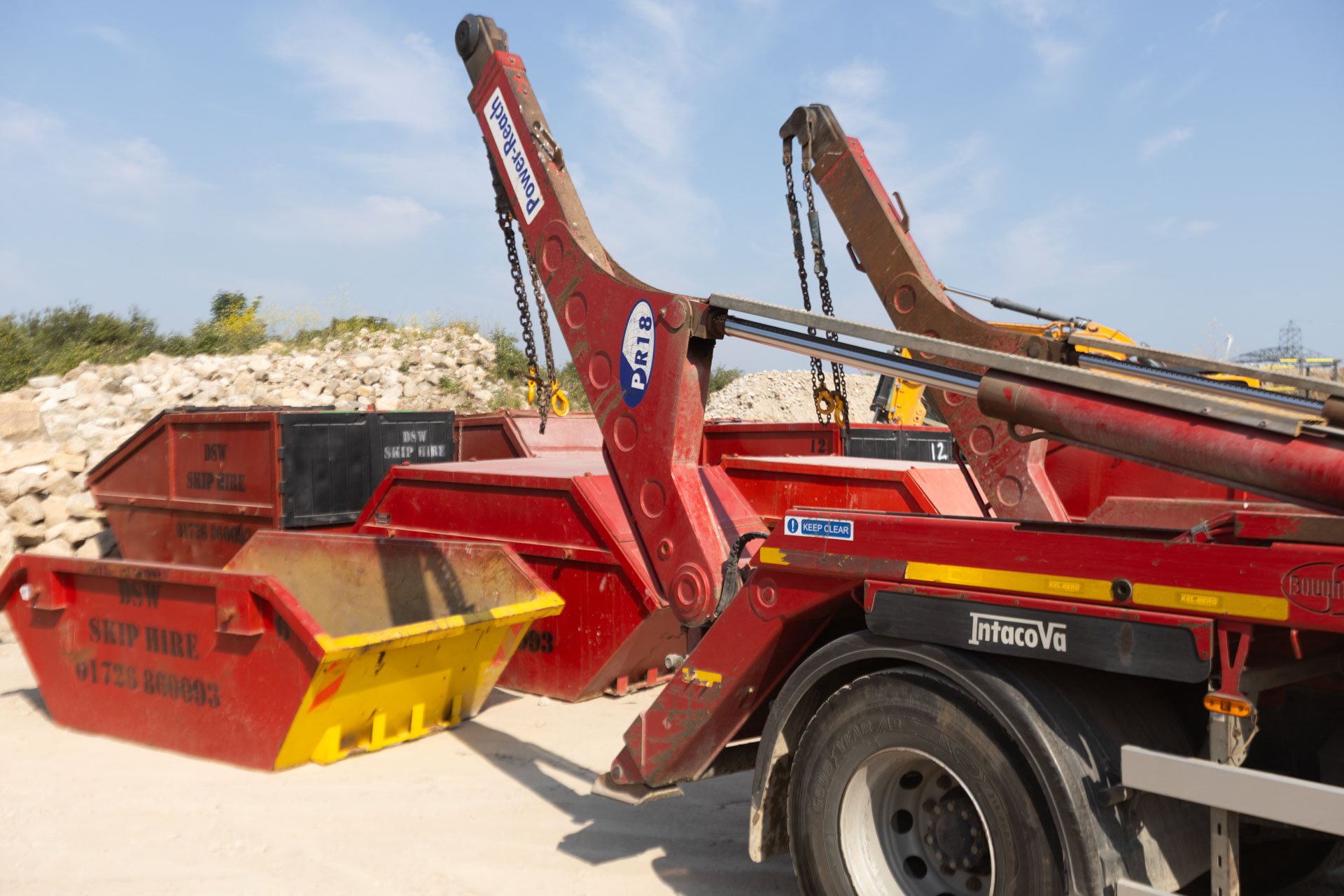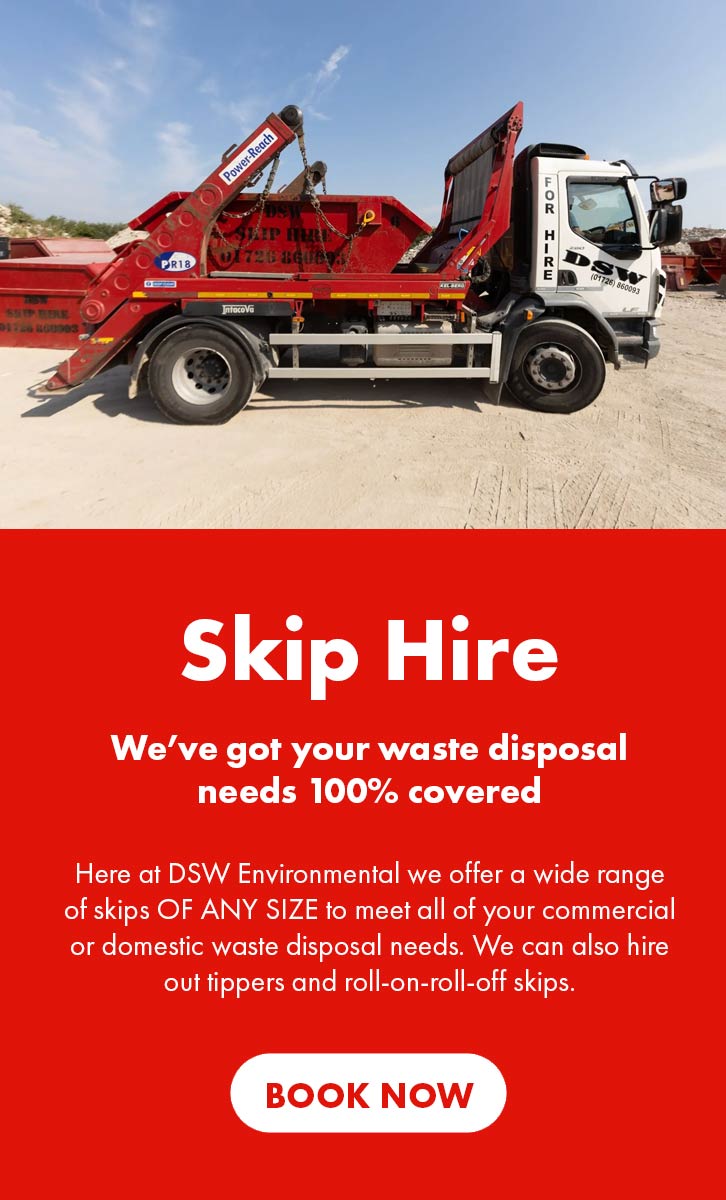Are you embarking on a home renovation or construction project and in need of a reliable skip hire service? Look no further! Choosing the right skip hire service can make all the difference in effectively managing your waste and keeping your project on track. But with so many options available, it can be overwhelming to find the perfect fit for your specific needs. In this comprehensive resource, we will walk you through the essential factors to consider when selecting a skip hire service. From size and capacity to permits and recycling policies, we’ve got you covered. Whether you’re a seasoned DIY enthusiast or a professional contractor, our guide will equip you with the knowledge and insights you need to make an informed decision. So, let’s dive in and discover the best skip hire service that will streamline your project and ensure a seamless waste management process.
Understanding the importance of skip hire services
Skip hire services play a crucial role in waste management for various construction and renovation projects. They provide a convenient and efficient way to get rid of large amounts of waste quickly and safely. By hiring a skip, you can avoid the hassle of multiple trips to the local landfill or recycling centre. Skips are available in different sizes, making them suitable for projects of all scales, from small home renovations to large commercial constructions. Additionally, skip hire services often have well-established waste disposal systems, ensuring that your waste is handled in an environmentally friendly manner. With the right skip hire service, you can focus on your project without worrying about the logistics of waste management.
When it comes to selecting a skip hire service, there are several factors you need to consider. Let’s explore them in detail.
Factors to consider when choosing a skip hire service
1. Types of skips available
Skip hire services such as DSW’s offer a range of skip types to cater to different waste disposal needs. The different sizes of skips for hire from DSW are as follows:
- 2 Yard Skips: Our 2 yard skips are the smallest size of skip that we have available for hire, and are ideal for smaller jobs, spring cleaning or for getting rid of your garden waste. Their compact size means that we are often able to place it off road on the smallest of driveways.
- 4 Yard Skips: Sometimes called a Midi Skip, our 4 Yard Skips are ideal for home renovation, kitchen and bathroom refits, garden clearances or just seasonal clear outs. You can easily fit a few medium sized objects in here such as Bikes, Small Fridges, Televisions and Small Sofas.
- 6 Yard Skips: Also known as Builder’s skips, our 6 Yard Skips are larger, typically ranging from 6 to 8 cubic yards. They are commonly used for construction projects, where larger amounts of waste are generated. In domestic use, they are big enough to hold a number of larger and medium sized objects such as 3 Piece Sofas, Armchairs, Office Furniture, Kitchen Units, Garden Waste and Soil & Stone
- 8 Yard Skips: Our larger 8 Yard Skips can hold approximately 80-90 black bags, or just over 24 household-sized wheelie Bins, and are extremely popular for larger clear-outs and commercial jobs and are excellent for carrying bulky items.
- 12 Yard Skips: Our 12 Yard Skip is the largest open chain-skip that we have available. They are regularly used by commercial clients for large projects that include bulky items and general construction waste.
- Enclosed Skip: Our enclosed skips are typically 12 cubic yards in size. Being enclosed means that they have a lid that can be useful for keeping plasterboard dry, for example, in order to reduce the final weight. The lid is also lockable which can come in very useful for keeping prying hands out of it or other people taking advantage of it!
- 17 Yard Ro-Ro (Roll-On, Roll-Off) Skip: Whilst they are occasionally hired by domestic clients, 17 yard skips are typically used within the commercial and industrial sectors, and can be used for rubble, construction waste, garden waste, soil, wood, metal, and plastic.
- 30 Yard Ro-Ro Skip: For large industrial projects with large amounts of bulky and heavy waste, the 30 yard RORO is the ideal solution. Roll on Roll off are big skips for commercial waste. Perfect for construction and demolition.
- 40 Yard Ro-Ro Skip: This is the largest skips that we have on offer.
- 40 Yard Ro-Ro Skip (Enclosed): The lockable and covered version of our largest skip.
2. Determining the right size of skip for your project
Choosing the right size of skip is crucial to avoid unnecessary costs and ensure efficient waste disposal. Opting for a skip that is too small may require additional trips for waste removal, while choosing one that is too large can result in wasted space and unnecessary expenses. Consider the volume and type of waste you expect to generate during your project. If you’re unsure about the size you need, most skip hire companies can provide guidance based on the nature of your project. It’s always better to slightly overestimate your requirements to avoid any inconvenience during the waste disposal process.
3. Considerations for selecting a reputable skip hire company
When it comes to skip hire services, it’s essential to choose a reputable and reliable company, such as us here at DSW. Here are a few factors to consider:
- Experience and reputation: Look for a skip hire company with a solid track record and positive customer reviews. A reputable company is more likely to provide excellent service and ensure a smooth waste management process.
- Licenses and permits: Check if the skip hire company holds the necessary licenses and permits to operate legally. This ensures that your waste is disposed of in compliance with local regulations.
- Insurance coverage: Confirm that the skip hire company has appropriate insurance coverage. This protects you in case of any accidents or damage that may occur during the skip hire process.
- Customer support: Choose a skip hire company that offers efficient and responsive customer support. This is especially important if you encounter any issues or have questions during the project.
4. Pricing and payment options for skip hire services
Pricing is an important factor when selecting a skip hire service. Different companies may have varying pricing structures, so it’s worth obtaining quotes from multiple providers. Contact our Skip Hire team for the latest pricing.
The cost of skip hire usually depends on factors such as the size of the skip, the duration of the hire, and the location of your project. Some companies offer fixed pricing, while others may charge additional fees for permits, waste disposal, or extended hire periods. Ensure you have a clear understanding of the pricing and payment options before finalising your decision.
These are just a few of the key factors to consider when choosing a skip hire service. Let’s continue exploring more aspects in the following sections.
Understanding the skip hire process
The skip hire process typically involves several steps, from booking the skip to its collection and waste disposal. Here’s a breakdown of what to expect:
- Booking: Once you have selected a skip hire service, you will need to book the skip for your desired dates. Provide us with information about the project, such as the type and size of skip required, the duration of hire, and the delivery location.
- Delivery: On the agreed-upon date, the skip will be delivered to your location. Ensure that there is enough space for the skip and any necessary permits are obtained if required.
- Filling the skip: Once the skip is in place, you can start filling it with your waste. Be mindful of the skip’s weight limit and avoid overfilling, as this may result in additional charges and difficulties during collection.
- Collection: When your project is complete or the skip is full, contact us to arrange collection. We will schedule a convenient time for removal and disposal.
- Waste disposal: We are responsible for disposing of the waste in an appropriate manner. Reputable companies, such as ourselves, prioritise recycling and proper waste management practices to minimise environmental impact.
Understanding the skip hire process can help you plan and manage your waste effectively. However, it’s essential to be aware of environmental considerations and waste disposal regulations as well.
Environmental considerations and waste disposal regulations
Proper waste management is not only essential for the success of your project but also for the environment. When choosing a skip hire service, prioritise companies that have a strong commitment to sustainability and waste reduction. Here are some environmental considerations to keep in mind:
- Recycling policies: Inquire about the skip hire company’s recycling policies. A reputable service will aim to recycle as much waste as possible, diverting it from landfill sites.
- Waste segregation: Proper waste segregation is crucial for effective recycling. Ask if the skip hire company provides guidance on segregating different types of waste.
- Legal compliance: Ensure that the skip hire service follows all waste disposal regulations and holds the necessary licenses and permits. This ensures that your waste is handled legally and responsibly.
By choosing an environmentally conscious skip hire service, you can contribute to a greener and more sustainable construction industry.
Tips for maximising the use of your skip
To make the most of your skip hire service, consider the following tips:
- Plan your waste disposal: Proper planning is key to efficient waste disposal. Estimate the amount of waste you expect to generate and choose the appropriate skip size accordingly.
- Avoid hazardous waste: Skip hire services typically have restrictions on hazardous materials, such as asbestos, chemicals, or batteries. Ensure you understand and comply with these restrictions to avoid any issues.
- Organise your waste: To maximise the space in your skip, organise your waste efficiently. Break down larger items and flatten cardboard boxes to make the most of the available space.
- Utilise recycling centres: If you have recyclable waste that cannot be placed in the skip, consider utilising local recycling centers to minimise landfill waste.
By implementing these tips, you can optimise your skip hire experience and contribute to responsible waste management.
Conclusion: Making an informed decision for your skip hire needs
Choosing the right skip hire service is crucial for effective waste management during your project. By considering factors such as skip type, size, company reputation, and pricing, you can make an informed decision that meets your specific requirements. Additionally, understanding the skip hire process and environmental considerations ensures that your waste is handled responsibly. Remember to plan your waste disposal, follow legal regulations, and maximise the use of your skip to make the most of your skip hire service.


